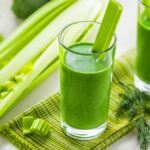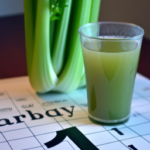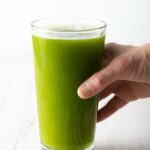Juice Tips and Tricks
How Long Can You Store Celery Juice
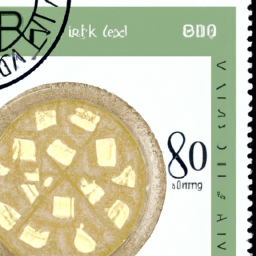
As someone who regularly includes celery juice in my healthy diet, I often think about how long I can store it for. What is the longest time that it can stay fresh in the refrigerator or freezer? This question is important not only for convenience but also for preserving the nutritional benefits of the juice.
In this article, I will explore the factors that affect the shelf life of celery juice, how to preserve its nutrients, and the risks of drinking spoiled juice. Celery juice has become increasingly popular in recent years due to its numerous health benefits, including reducing inflammation, improving digestion, and boosting the immune system. However, like any fresh juice, it is important to consider its shelf life to ensure that it remains safe to drink and that its nutritional value is not compromised.
Factors such as temperature, oxygen exposure, and contamination can all affect how long celery juice can be stored. By understanding these factors and taking appropriate measures to preserve the juice, you can ensure that you can enjoy the benefits of celery juice for as long as possible.
Key Takeaways
- Proper storage of celery juice includes a glass or plastic container with a tight-fitting lid, in the fridge, away from light.
- Celery juice can last up to 72 hours in the fridge when stored properly, and up to 6 months in the freezer.
- Signs of spoilage include a funky smell, slimy texture, and strange color.
- Adding lemon juice or vitamin C powder can prevent oxidation, and airtight glass jars or bottles are best for storing for longer than 24 hours.
The Benefits of Celery Juice
You’re probably wondering what benefits you can reap from drinking celery juice, huh? Well, let me tell you, there are quite a few health benefits to be had. Firstly, celery juice is incredibly nutritious. It contains vitamins C, K, and B6, as well as potassium, folate, and calcium.
Drinking celery juice can help you stay hydrated, as it’s mostly water, and it can also support healthy digestion thanks to its high fiber content. But that’s not all – some studies have shown that celery juice may also have anti-inflammatory properties and can help lower blood pressure and cholesterol levels.
It’s even been linked to improved skin health and a reduced risk of certain types of cancer. With all these health benefits, it’s no wonder that celery juice has become such a popular drink. So now that you know how good it is for you, let’s talk about how to make sure you get the most out of it by storing it properly.
Factors Affecting the Shelf Life of Celery Juice
The shelf life of this refreshing beverage heavily relies on various factors, such as the presence of oxygen, acidity level, and temperature, with a study showing that celery juice can last up to 72 hours in the fridge when stored properly. Factors affecting taste include the presence of air, which causes oxidation and browning, and the juice’s acidity level. Celery juice has a high water content, making it prone to spoilage, especially when exposed to air. To prevent browning, adding a few drops of lemon juice or storing the juice in an airtight container can help.
To better understand the factors affecting the shelf life of celery juice, I created a table that provides an overview of the optimal storage conditions for this drink. The table shows that celery juice should be stored in a glass or plastic container with a tight-fitting lid, in the refrigerator, and away from light. By following these guidelines, celery juice can retain its freshness and nutritional value for up to three days.
Moving on, let’s explore the next subtopic: How long can celery juice be stored in the refrigerator?
How Long Can Celery Juice Be Stored in the Refrigerator?
When it comes to storing celery juice in the refrigerator, there are certain best practices that I follow to ensure its shelf life. Firstly, I always store it in an airtight container and make sure that it’s tightly sealed before placing it in the fridge.
Secondly, I try to consume it within 3-4 days to avoid spoilage. Lastly, I keep an eye out for any signs of spoilage such as a sour smell or changes in color.
By following these practices, I can prolong the shelf life of celery juice and enjoy its health benefits for a longer time.
Best Practices for Refrigerating Celery Juice
If you want to keep your celery juice fresh and nutritious for a longer period, refrigerate it immediately after blending and consume it within 24-48 hours. This is the best way to ensure that the juice remains safe to drink and doesn’t spoil.
One of the most common mistakes people make when storing celery juice is leaving it out at room temperature for too long before refrigerating it. This can cause the juice to spoil quickly and can also lead to the growth of harmful bacteria.
To prevent spoilage, it’s important to refrigerate the juice as soon as possible. You can also add a splash of lemon juice to the celery juice before refrigerating it to help preserve its freshness. Additionally, make sure to store the juice in a tightly sealed container to prevent any air from getting in and causing the juice to go bad.
By following these tips, you can keep your celery juice fresh and nutritious for as long as possible. However, if you notice any signs of spoilage such as a sour smell or taste, it’s best to discard the juice and make a fresh batch.
Signs of Spoilage
Pay attention to your senses when checking for signs of spoilage in your celery juice, as the nose knows best and can detect any funky odors. Spoiled celery juice can also have a slimy texture or strange color. To prevent spoilage, it’s important to properly store your celery juice in the refrigerator and consume it within a few days of juicing.
Here are some ways to prevent spoilage and how to tell if celery juice has gone bad:
| Signs of Spoilage | Prevention |
|---|---|
| Funky smell | Store celery juice in an airtight container in the refrigerator |
| Slimy texture | Consume celery juice within 2-3 days of juicing |
| Strange color | Keep celery juice away from direct sunlight and heat |
If your celery juice has any of the above signs of spoilage, it’s best to discard it. Don’t take any chances with your health. In the next section, we will discuss how long celery juice can be stored in the freezer.
How Long Can Celery Juice Be Stored in the Freezer?
Surprisingly, freezing celery juice is a great way to extend its shelf life. When stored in an airtight container, celery juice can last up to 6 months in the freezer. However, it’s important to note that the freezing process may affect the texture and taste of the juice.
To freeze celery juice, simply pour it into a freezer-safe container, leaving about an inch of space at the top to allow for expansion during freezing. You can also freeze the juice in ice cube trays for easy portioning.
When it comes time to thaw the juice, it’s best to do so in the refrigerator overnight or using the defrost setting on your microwave. Avoid thawing celery juice at room temperature, as this can promote bacterial growth and spoilage.
Preserving the nutrients in celery juice requires careful consideration of storage and preparation methods.
How to Preserve the Nutrients in Celery Juice
To maximize the nutritional benefits of your celery juice, it’s important to properly handle and prepare it. One of the main concerns with celery juice is preventing oxidation, which can lead to a loss of nutrients.
To do this, it’s best to drink the juice immediately after juicing or store it in an airtight container in the refrigerator for no more than 24 hours. Glass containers are preferable to plastic as they’re non-reactive and won’t leach any harmful chemicals into the juice.
Another way to preserve the nutrients in celery juice is to add a touch of lemon juice or vitamin C powder to the juice before drinking or storing it. The acid in lemon juice and vitamin C helps to prevent oxidation and keep the juice fresh for longer.
If you do need to store celery juice for longer than 24 hours, the best containers for storage are airtight glass jars or bottles. These will help to keep the juice fresh and prevent any contamination.
Now, let’s move on to the next section where we’ll discuss using frozen celery juice.
Using Frozen Celery Juice
Now that we know how to preserve the nutrients in celery juice, let’s talk about another way to extend its shelf life: freezing. Freezing is a convenient method for keeping celery juice fresh for longer periods of time. However, it’s important to note that the freezing process can affect the texture and flavor of the juice.
There are a few different freezing methods you can try. One option is to pour the celery juice into ice cube trays and freeze them. Once they’re frozen, you can transfer the cubes to a freezer-safe container or bag. Another option is to pour the juice into freezer-safe containers and freeze them in larger quantities.
When you’re ready to use the frozen juice, simply thaw it in the refrigerator or at room temperature. You can also use a blender or food processor to blend the frozen cubes or chunks back into a smooth consistency.
Now that we’ve covered freezing methods and thawing techniques for celery juice, let’s move on to the next section where we’ll discuss how to make celery juice last even longer.
How to Make Celery Juice Last Longer
Extending the lifespan of your favorite green drink can give you peace of mind, knowing you always have a healthy option on hand. Here are some ways to preserve celery juice and tips for storing celery juice:
-
Keep it refrigerated: Once you’ve made your celery juice, transfer it immediately to a clean, airtight container and store it in the fridge. This will help slow down the oxidation process and keep your juice fresh for up to 24-48 hours.
-
Use lemon juice: Adding a few drops of fresh lemon juice to your celery juice can also help extend its life. The citric acid in the lemon juice acts as a natural preservative and can help keep your juice fresh for up to 72 hours.
-
Freeze it: If you don’t plan on consuming your celery juice right away, consider freezing it. Pour your juice into an ice cube tray and freeze it. Once frozen, transfer the cubes to a freezer bag or container and label it with the date. Frozen celery juice can last up to 3 months.
By following these tips, you can enjoy your celery juice for longer and reduce food waste. However, it’s important to note that spoiled celery juice can cause health risks. Let’s take a look at the risks of drinking spoiled celery juice.
Risks of Drinking Spoiled Celery Juice
If you’re not careful with how you preserve your green drink, you could be putting your health at risk by drinking spoiled celery juice. Consuming celery juice that has gone bad can lead to food poisoning, which can cause a wide range of symptoms such as nausea, vomiting, diarrhea, abdominal pain, and fever. These symptoms usually appear within a few hours to a few days after ingesting contaminated food or drink.
To avoid the risks of consuming spoiled celery juice, it’s important to be aware of the signs of celery juice contamination. One way to do this is to pay attention to the smell and taste of the juice. Spoiled celery juice may have a sour or rancid odor, or it may have a bitter taste. Another way to check for contamination is to look for signs of mold or discoloration in the juice. If you notice any of these signs, it’s best to discard the juice to avoid the risk of food poisoning.
As for alternatives to homemade celery juice, there are many options available, such as store-bought celery juice or other green juices. These alternatives are often pasteurized or bottled in a way that extends their shelf life, minimizing the risk of contamination.
Alternatives to Homemade Celery Juice
Consider trying out other green drinks that are readily available to you as juice alternatives. There are plenty of flavor combinations to choose from that not only taste great, but also offer a variety of health benefits.
For instance, a kale smoothie that tastes like a refreshing tropical drink on a hot summer day is a great option. Kale is packed with vitamins and minerals that are essential for maintaining a healthy body. Plus, the tropical flavor combination makes this drink a delicious and refreshing treat.
Another option is a spinach and ginger juice that packs a punch like a superhero’s fist. Spinach is a nutrient-dense leafy green that is high in fiber, vitamins, and minerals. Adding a touch of ginger not only gives the juice a spicy kick, but also provides anti-inflammatory properties.
This drink is perfect for those looking to boost their immunity and improve digestion. So, if you’re looking for a change from celery juice, try out these green drinks and see which ones become your new favorites.
Frequently Asked Questions
Can celery juice be stored at room temperature?
Storing celery juice at room temperature is not recommended as it can lead to bacterial growth and spoilage. Proper storage techniques, such as refrigeration, can extend the shelf life of celery juice and maintain its nutritional value.
Can I mix other fruits or vegetables with celery juice and still store it for the same amount of time?
Mixing variations of fruits and vegetables with celery juice is possible and can be stored for the same amount of time. Incorporating other produce can increase the nutritional benefits of the juice.
Does the type of juicer used affect the shelf life of celery juice?
Comparing juicer types, the oxidation of celery juice can vary. Centrifugal juicers expose the juice to more air, leading to quicker oxidation. Masticating juicers produce less oxidation, resulting in a longer shelf life.
Can I freeze celery juice in glass containers?
Freezing celery juice in glass containers is a convenient way to store it long-term. Glass is preferable to plastic as it doesn’t leach harmful chemicals. Hyperbole: It’s like preserving the taste of fresh celery forever.
Can celery juice be stored for longer periods of time if it is pasteurized?
Pasteurization can extend the shelf life of celery juice by killing harmful bacteria. However, it may also decrease some of the nutritional value compared to fresh juice. Benefits of pasteurization include reduced risk of illness, but fresh juice may offer more nutrients.
Conclusion
In conclusion, storing celery juice can be tricky, but understanding the factors affecting its shelf life can help you make the most out of it. While it’s best to consume celery juice fresh, it can be stored for up to 3-4 days in the refrigerator and up to 6 months in the freezer. However, the longer you store it, the more it loses its nutrients, making it less effective in providing health benefits. To maximize its nutritional value, always store celery juice in an airtight container and minimize exposure to light and air. Ultimately, how long celery juice lasts depends on proper storage methods, as well as individual preferences regarding taste and nutrient retention. Although freezing can extend its shelf life, consuming it sooner is ideal for optimal health benefits.
It’s important to note that drinking spoiled celery juice can lead to foodborne illnesses, so it’s crucial to check for any signs of spoilage before consuming it. Ultimately, while homemade celery juice may be a popular choice for health enthusiasts, there are other alternatives to still get the benefits of celery, such as adding it to meals or purchasing pre-made celery juice.
By understanding the best ways to store and preserve celery juice, you can ensure that you’re getting the most out of this nutritious drink.
Cindy thoroughly researches juicing trends, techniques, and recipes to provide readers with practical advice and inspiration. Her writing style is accessible, engaging, and designed to make complex concepts easy to understand. Cindy’s dedication to promoting the advantages of juicing shines through her work, empowering readers to make positive changes in their lives through the simple act of juicing.
Juice Tips and Tricks
How Long Is Apple Juice Good For In The Fridge
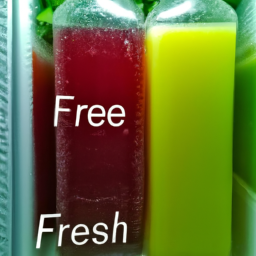
When I stand in front of my refrigerator, I can’t help but feel guilty when I see the half-empty bottle of apple juice. I wonder how long it’s been sitting there and if it’s still safe to consume. It’s a scenario that many of us can relate to, right?
But the truth is, not knowing the shelf life of apple juice can result in wasted money and potential health risks. So, lets dive into the topic and find out just how long apple juice can last in the fridge.
Apple juice is a refreshing and nutritious drink that many of us enjoy. Its no wonder that its a staple in many households. But, like many perishable goods, it has a limited shelf life. Proper storage and handling techniques are crucial in ensuring that your apple juice stays fresh and safe to consume.
In this article, well explore how long apple juice lasts in the fridge, how to tell if its gone bad, and tips on how to extend its shelf life. So, lets get started!
Key Takeaways
- Proper storage is crucial for fresh and safe apple juice consumption.
- Apple juice can last up to 7-10 days in the fridge, but pasteurized juice lasts longer than unpasteurized juice.
- Temperature between 32-40°F plays a significant role in shelf life extension.
- Freezing can extend the shelf life of apple juice for up to a year, and preservatives like ascorbic acid can help prolong shelf life.
Understanding the Shelf Life of Apple Juice
You’re probably wondering, ‘How long can I keep that apple juice in the fridge before it goes bad?’ Well, let’s talk about the shelf life of apple juice.
Apple juice can last up to 7-10 days in the fridge, but this can vary depending on factors such as the quality of the juice and the temperature it’s stored at. If the juice is not pasteurized, it may start to ferment after a few days, resulting in a sour taste and a fizzy texture. Therefore, it’s important to check the expiration date on the bottle and consume it before it goes bad.
The effects of temperature also play a crucial role in the shelf life of apple juice. The colder the temperature, the longer it will last. Ideally, apple juice should be stored at a temperature between 32-40°F. If it’s left out at room temperature for too long, it can spoil quickly and become a breeding ground for bacteria.
Proper storage techniques, such as keeping the juice in an airtight container or tightly sealed bottle, can help extend its shelf life.
Proper Storage Techniques
When storing apple juice, it’s important to use proper storage techniques to ensure it stays fresh for as long as possible.
The first step is to keep it in a tightly sealed container to prevent exposure to air and other contaminants. This will help preserve the quality of the juice and prevent it from going bad quickly.
Additionally, it’s best to place the container towards the back of the refrigerator where the temperature is more stable.
There are also organic options available for those who want to reduce waste and support sustainable practices. These options may have a shorter shelf life than conventional apple juice, so it’s important to pay attention to the expiration date and use it before it goes bad.
By taking these steps, you can ensure that your apple juice stays fresh and delicious for as long as possible.
Moving on to the next section, it’s important to know the signs of spoilage to avoid consuming spoiled juice.
Signs of Spoilage
When it comes to checking whether apple juice is still good to consume, there are three key indicators to look out for: changes in appearance, changes in smell, and changes in taste.
As someone who wants to ensure that I’m consuming safe and fresh juice, I pay close attention to these signs of spoilage. By doing so, I can be confident in knowing whether the apple juice is still okay to drink or if it’s time to dispose of it.
Changes in Appearance
As time passes, the once clear and vibrant apple juice in your fridge may start to take on a cloudy and dull appearance, like a beautiful sunset fading into a dreary, overcast sky. This change in appearance is a clear indication that the apple juice is no longer fresh and may have started to spoil.
Color changes and sediment formation are common indicators of spoilage in apple juice. The once clear juice will start to become cloudy and may even develop sediment at the bottom of the container.
It’s important to note that appearance changes are not the only indicator of spoilage in apple juice. The changes in smell can also be an indicator of spoilage. As the apple juice starts to spoil, it may start to emit a sour or musty odor.
If you notice any changes in appearance or smell, it’s best to discard the apple juice to avoid any potential health risks.
Changes in Smell
The pungent aroma from the spoiled apple juice can be a clear indication of potential health risks, making it crucial to pay attention to any changes in smell. Smell sensitivity is key when preserving freshness. Here are three things to keep in mind:
-
Fresh apple juice has a sweet, fruity aroma. If there’s a sour or musty odor, it may be a sign that the juice has gone bad.
-
The scent of fermented apple juice is similar to alcohol. If you detect a boozy smell, it could mean that the juice has started to ferment and should be discarded.
-
Pay attention to any unusual or off-putting smells. If the juice smells rancid or like vinegar, it’s time to throw it out.
With the knowledge of how to detect changes in smell, you can ensure your apple juice is safe to drink and tastes as it should. Speaking of taste, let’s explore the next section on changes in taste.
Changes in Taste
Get ready for a flavor adventure as we explore how changes in taste can affect your drinking experience.
Apple juice is a delicious and refreshing beverage that can be enjoyed at any time of the day. However, over time, the taste of apple juice can change due to a process called fermentation.
Fermentation occurs when the natural sugars in the juice interact with yeast and bacteria, causing the juice to become more acidic and tart. As apple juice fermentation occurs, the acidity levels increase, giving the juice a sour taste that may not be as enjoyable as the original flavor.
Additionally, the longer the juice sits, the stronger the tart flavor becomes, making it less palatable for some people. It’s important to note that while some changes in taste are normal, other changes may indicate that the juice has gone bad.
So, how can you tell if your apple juice is still good to drink?
How to Check if Apple Juice is Still Good
You can tell if your apple juice is still good by checking the expiration date on the bottle or by smelling it. Here are some tips to help you determine if your apple juice is still safe to drink:
-
Check the expiration date on the bottle. If the juice has expired, it’s best to dispose of it immediately.
-
Do a taste test. If the juice tastes sour or has an off flavor, it may have gone bad.
-
Look for any visible signs of spoilage, such as mold or discoloration.
-
Smell the juice. If it has a strange or foul odor, it may be spoiled.
If your apple juice is still good, you can extend its shelf life by storing it properly.
Extending Shelf Life
I’ve found a couple of ways to extend the shelf life of apple juice beyond its expiration date. One of them is to freeze it. When you freeze apple juice, it can last for up to a year.
Another option is to use preservatives. Adding preservatives like ascorbic acid can prevent the growth of bacteria and prolong the juice’s shelf life.
Freezing Apple Juice
Don’t let your freshly squeezed apple juice go to waste – extend its lifespan by freezing it! Freezing apple juice is an easy and convenient way to make it last longer. Here are some things to keep in mind when freezing apple juice:
- Make sure to use a container that’s freezer-safe and has enough headspace for the juice to expand as it freezes.
- Label the container with the date and contents so you can keep track of how long it has been frozen.
- Thaw the apple juice in the refrigerator overnight before drinking it or using it in a recipe.
- Frozen apple juice can be stored for up to 8 months.
Not only does freezing apple juice help it last longer, but it also preserves the health benefits of the juice. Apple juice is a great source of vitamin C and antioxidants, which help boost the immune system and fight off disease. Using frozen apple juice in creative recipes, such as smoothies or popsicles, is also a great way to add a nutritious twist to your favorite treats.
Transitioning into the subsequent section about using preservatives, another way to extend the shelf life of apple juice is by using preservatives.
Using Preservatives
Adding preservatives to your homemade apple juice can help keep it fresh and delicious for weeks to come, allowing you to savor the crisp, sweet taste of freshly picked apples even when they’re out of season. However, there are concerns about the health effects of some preservatives, so it’s important to consider your options carefully.
While there are various preservative alternatives available, some are considered safer than others. One common option is ascorbic acid, also known as vitamin C, which can be added to apple juice to prevent oxidation and spoilage. Another option is citric acid, which can also help preserve the flavor of the juice. However, some people may prefer to avoid preservatives altogether due to potential health concerns. If that’s the case, freezing your apple juice may be a better option for long-term storage.
As you consider your options for preserving your apple juice, it’s important to weigh the benefits and potential risks of each method. Once you’ve decided on the best approach for your needs, you can enjoy your homemade apple juice for weeks or even months to come. In the next section, we’ll explore some tips for using leftover apple juice in creative and delicious ways.
Tips for Using Leftover Apple Juice
To make the most of your leftover apple juice, try using it to sweeten your morning oatmeal or as a base for a tasty smoothie.
There are plenty of ways to use leftover juice, and with a little creativity, you can create some delicious recipes.
For example, you could use the juice as a marinade for chicken or pork, or mix it with a little vinegar and oil for a refreshing salad dressing.
You could also add it to your favorite cake or muffin recipe for a subtle apple flavor.
It’s important to note that leftover apple juice should be refrigerated and consumed within a few days to ensure freshness.
Other factors to consider when using leftover juice include the type of juice, any added sugars or preservatives, and the overall quality of the juice.
In the next section, we’ll explore these factors in more detail.
Other Factors to Consider
When using leftover apple juice, it’s important to consider other factors that can affect the quality and taste of the juice. One of the things to consider is the ingredients added to the juice. For instance, if the juice has been sweetened or has added preservatives, this can affect the taste of your recipe. It’s also important to check the expiration date of the juice before using it. While apple juice can last for up to a year when unopened, it can last for only up to 7 days when opened and stored in the fridge.
Despite the short shelf life of apple juice in the fridge, there are still a lot of recipes that you can make with leftover apple juice. Apple juice can be used in smoothies, cocktails, marinades, and dressings. Additionally, apple juice is known for its health benefits, such as being rich in antioxidants, vitamin C, and fiber. With its versatility and health benefits, apple juice is an excellent ingredient to have on hand for any recipe.
Moving on to the next section, let’s take a look at some sources and additional resources that can help you learn more about apple juice and its uses.
Sources and Additional Resources
If you’re looking to expand your knowledge on the benefits of incorporating apple juice into your diet, there are a variety of sources and additional resources available for you to explore.
One great resource to check out is the USDA National Nutrient Database, which provides detailed information about the nutritional value of apple juice.
Additionally, many health and wellness websites offer articles and blog posts discussing the benefits of apple juice and how to incorporate it into your daily routine.
When it comes to preserving apple juice, there are several methods you can use to extend its shelf life.
One common preservation method is to pasteurize the juice, which involves heating it to a high temperature to kill off any bacteria.
Another option is to freeze the juice, which can preserve its freshness for several months.
Regardless of the preservation method you choose, it’s important to consume the apple juice within a reasonable amount of time to ensure that it retains its nutritional value.
Frequently Asked Questions
Can I freeze apple juice to extend its shelf life?
I’m gonna freeze my apple juice to keep it fresh for longer. It’ll affect the nutritional value a bit, but there are options to mitigate that. It’s a great way to save money and reduce waste.
How long does apple juice last once it has been opened?
Once opened, apple juice lasts for about 7-10 days in the fridge. To extend its shelf life, I suggest freezing it. Drinking apple juice regularly can provide various benefits, including improved digestion and a boost in immunity.
Can I still drink apple juice that has passed its expiration date?
I wouldn’t recommend drinking expired apple juice due to potential health risks. It’s important to properly store juice in the fridge and check expiration dates. Don’t take chances with expired beverages.
Can I mix expired apple juice with fresh apple juice to extend its life?
I would not recommend mixing expired apple juice with fresh juice to extend its life. Instead, use proper preservation techniques and follow refrigeration guidelines to ensure the freshness and safety of your apple juice.
How does the shelf life of homemade apple juice compare to store-bought apple juice?
In my experience, homemade apple juice can have a shorter shelf life than store-bought, but it often retains more nutritional value. However, store-bought may be more cost-effective in the long run.
Conclusion
So, after conducting thorough research, it seems that apple juice can last anywhere from 7 to 10 days in the fridge, as long as it’s properly stored and kept away from any potential contaminants. Additionally, it’s important to note that pasteurized apple juice tends to last longer than fresh, unpasteurized varieties due to its reduced risk of bacterial growth. Keeping the juice in an airtight container can also help extend its freshness. Ultimately, how long juice lasts refrigerated depends on factors such as storage conditions and whether the juice has been opened or remains sealed.
However, it’s always important to check for any signs of spoilage before consuming, such as a sour smell or taste, cloudiness, or mold.
But what does this mean for us as consumers? It highlights the importance of being mindful of our food and beverage storage habits, as well as being aware of the potential risks that come with consuming expired or contaminated items.
Taking the time to properly store and check our food and beverages can not only extend their shelf life, but also ensure our own health and safety.
Cindy thoroughly researches juicing trends, techniques, and recipes to provide readers with practical advice and inspiration. Her writing style is accessible, engaging, and designed to make complex concepts easy to understand. Cindy’s dedication to promoting the advantages of juicing shines through her work, empowering readers to make positive changes in their lives through the simple act of juicing.
Juice Tips and Tricks
How Long Does Squeezed Juice Last

I often think about how long fresh juice will stay good for before it spoils, due to various factors like the type of fruit used, how it is stored, and the processing methods.
In this article, I will explain the science behind the spoilage process and provide tips on how to extend the shelf life of your squeezed juice. Understanding the factors that affect the shelf life of squeezed juice is crucial for maintaining its quality and safety.
Spoilage can occur due to the growth of microorganisms, oxidation of nutrients, or enzymatic reactions. By gaining a better understanding of the spoilage process and implementing proper storage techniques, you can ensure that your squeezed juice remains fresh and safe to consume.
So, let’s dive in and explore the shelf life of squeezed juice!
Key Takeaways
- The shelf life of squeezed juice is affected by the type of fruit, storage method, and processing techniques.
- Spoilage of squeezed juice can be caused by microbial growth, oxidation, and enzymatic reactions.
- Preservation methods such as pasteurization, high-pressure processing, and additives like citric acid and ascorbic acid can help prevent spoilage.
- Proper handling and storage, including refrigeration and storing in an airtight container, can help prolong the shelf life of freshly squeezed juice.
Factors Affecting the Shelf Life of Squeezed Juice
There’s a few things that’ll affect how long your squeezed juice’ll last. One of the biggest factors is the juice preservation methods used.
Pasteurization, for example, is a common method used to increase the shelf life of juice. This process involves heating the juice to a high temperature to kill off any bacteria or microorganisms that could cause spoilage. However, pasteurization can also affect the taste and nutritional value of the juice.
High-pressure processing (HPP) is another preservation method that uses high pressure to kill off harmful microorganisms without affecting the taste or nutritional value of the juice.
Another factor that can impact the shelf life of squeezed juice is the use of additives. Some additives, such as citric acid or ascorbic acid (vitamin C), can help to preserve the juice by preventing the growth of bacteria and other microorganisms. However, other additives, such as sugar or artificial sweeteners, can actually increase the rate of spoilage by providing a food source for bacteria. It’s important to read the ingredients label and understand the impact of each additive on the juice’s shelf life.
Understanding the factors that affect the shelf life of squeezed juice is important in order to ensure that you’re getting the most out of your juice. However, it’s also important to understand the spoilage process itself.
Understanding the Spoilage Process
In this subtopic, I’ll discuss the spoilage process of squeezed juice.
Microbial growth, oxidation, and enzymatic browning are three key factors that contribute to the spoilage of juice.
Microbial growth occurs when bacteria, yeast, or mold proliferate in the juice.
Oxidation happens when the juice is exposed to air, leading to a change in flavor and color.
Enzymatic browning, on the other hand, occurs when enzymes in the juice react with oxygen, causing discoloration and off-flavors.
Understanding these processes is crucial in determining the shelf life of squeezed juice.
Microbial Growth
Did you know that when you squeeze juice, you expose it to air and other contaminants, making it vulnerable to microbial growth? Preventing contamination is crucial in controlling microbial growth, which can lead to spoilage and potential health risks.
To ensure the safety of your juice, it’s important to properly handle and store it. One way to prevent contamination is by sanitizing all equipment and surfaces that come into contact with the juice. Using preservatives and pasteurization can also help control microbial growth, but it’s important to note that these methods may affect the taste and quality of the juice.
To maintain freshness and prolong the shelf life of your squeezed juice, it’s best to refrigerate it immediately after squeezing and consume it within a few days. As microbial growth is just one factor that affects the shelf life of squeezed juice, it’s also important to consider oxidation.
Oxidation
To keep your freshly squeezed juice tasting its best, you’ll want to pay attention to oxidation – a process that can quickly turn your juice sour and unappetizing. Oxidation occurs when oxygen comes into contact with the juice, causing a chemical reaction that breaks down its nutrients and alters its taste. To prevent oxidation, it’s important to store your juice properly. One way to do this is by keeping it in an airtight container, which will limit its exposure to oxygen. Another way to prevent oxidation is by adding antioxidants to your juice. Antioxidants are compounds that help protect against the damaging effects of oxygen, and they can be found in a variety of fruits and vegetables, including citrus fruits, berries, and leafy greens.
To ensure that your juice contains enough antioxidants to prevent oxidation, you may want to consider using a combination of different fruits and vegetables in your recipe. For example, adding berries to your juice can increase its antioxidant content, while also adding a sweet and tangy flavor. Additionally, you may want to consider adding a small amount of vitamin C to your juice, which can also act as an antioxidant. By taking steps to prevent oxidation, you can help your juice stay fresh and tasty for longer periods of time.
Moving on to enzymatic browning, it’s important to note that this process can also affect the taste and appearance of your juice.
Enzymatic Browning
Enzymatic browning can impact the quality of your juice, so it’s essential to understand how it works and how to prevent it. Here are three essential things to know about enzymatic browning:
-
Enzymatic browning occurs when enzymes in fruits and vegetables interact with oxygen in the air. This reaction creates brown pigments that can change the flavor and aroma of your juice.
-
Preventing browning can be done by taking steps to reduce oxygen exposure. This includes adding antioxidants like Vitamin C, or using enzyme inhibitors like citric acid or lemon juice.
-
Enzyme inhibitors work by slowing down or blocking the enzymes that cause browning. These inhibitors can be added directly to the juice or used as a coating on the fruit or vegetable before juicing.
Preventing browning is just one step in ensuring that your juice lasts as long as possible. It’s important to keep an eye out for signs of spoilage, which can include changes in color, texture, or smell. By understanding how enzymatic browning works and how to prevent it, you can enjoy fresh, delicious juice for longer.
Signs of Spoilage
If you notice a sour smell or see mold forming on the surface of your squeezed juice, it’s time to toss it out and make a fresh batch. These are clear signs of spoilage, and consuming spoiled juice can pose health risks.
The best way to prevent spoilage is to store your juice properly. Keep it refrigerated as soon as possible after squeezing it, and don’t leave it at room temperature for too long. Additionally, try to consume your juice within 24-48 hours of squeezing it.
Another way to detect spoilage is by observing changes in the texture and color of the juice. If it becomes murky or cloudy, it may have gone bad. Similarly, if the color changes from its original hue, it might be time to discard it.
The taste of the juice can also be a good indicator of spoilage. If it tastes sour, bitter, or has an off flavor, it’s best to err on the side of caution and throw it out. Remember that it’s better to be safe than sorry when it comes to consuming juice that may be spoiled.
When it comes to how long squeezed juice can last, there isn’t a definitive answer. The shelf life of juice depends on several factors, including the type of fruit or vegetable, the storage conditions, and the method of extraction. In general, freshly squeezed juice can last anywhere from a few days to a week if stored properly. However, it’s always best to consume it as soon as possible to get the most nutrients and flavor.
How Long Can Squeezed Juice Last?
You can extend the shelf life of your freshly squeezed juice by storing it in an airtight container in the refrigerator right after you finish making it. This will help preserve the juice’s freshness and prevent it from spoiling too soon.
It’s important to note that the shelf life of squeezed juice depends on a variety of factors, such as the type of fruit used, the storage conditions, and the presence of any preservatives or additives.
One of the best ways to preserve squeezed juice is to make it using homemade recipes. When making your own juice, you can avoid the use of preservatives and additives that can shorten the juice’s shelf life. Additionally, you can control the quality of the ingredients used and ensure that they’re fresh and free from any contaminants.
By following proper storage guidelines and using homemade recipes, you can enjoy your freshly squeezed juice for up to 3-5 days. To maximize its shelf life, it’s essential to refrigerate the juice immediately in an airtight container, preferably one made of glass, to prevent oxidation. Additionally, understanding **how to store fresh juice** properly will help preserve its nutrients and flavor for longer. Freezing is another option if you’d like to keep your juice for an extended period without compromising its quality.
In the next section, we’ll discuss the best practices for storing squeezed juice to further extend its shelf life.
Storing Squeezed Juice
When I store freshly squeezed juice, there are three key factors that I always consider: airtight containers, refrigeration, and freezing. Firstly, I make sure to use airtight containers to prevent any oxygen from entering and spoiling the juice.
Secondly, I store the containers in the refrigerator to slow down the growth of bacteria and maintain the quality of the juice.
Lastly, if I have excess juice that I won’t be able to consume within a few days, I freeze it to extend its shelf life.
By following these storage methods, I can enjoy my squeezed juice for longer without compromising its taste and freshness.
Airtight Containers
Using an airtight container to store squeezed juice is like sealing a genie in a bottle, preserving its freshness and flavor for up to three days.
Airtight containers come in different forms, including vacuum-sealed bags and glass jars. Vacuum-sealing is an excellent way to keep squeezed juice fresh, as it removes all the air from the container, preventing oxidation.
Glass jars, on the other hand, are a practical alternative that allows you to see the contents while keeping them airtight. When using an airtight container, it’s crucial to ensure that the lid is tightly secured to maintain the seal.
A loose lid means air can get in, causing the juice to spoil quickly. Additionally, it’s best to keep the container in a cool, dry place away from direct sunlight. This will help preserve the juice’s nutrients and prevent bacterial growth.
Once you’ve stored your squeezed juice in an airtight container, the next step is to refrigerate it to extend its shelf life further.
Refrigeration
Refrigerating freshly squeezed juice is essential for preserving its nutrients and flavor. The cold temperature slows down the growth of bacteria that can spoil the juice, ensuring that it stays fresh and safe to consume for a longer period of time. The benefits of drinking fresh juice are numerous, as it provides the body with essential vitamins and nutrients that are easily absorbed.
However, using fresh ingredients in juice making is equally important, as it guarantees a higher quality end product. When refrigerating squeezed juice, it’s important to store it in an airtight container to prevent oxidation and loss of nutrients. It’s also best to consume the juice within 24-48 hours of squeezing it, as the longer it sits in the refrigerator, the more its nutrients and flavor will deteriorate.
While refrigeration can extend the shelf life of squeezed juice, it’s not a foolproof method of preservation. In the next section, we’ll discuss how freezing can be used as an alternative method to preserve squeezed juice.
Freezing
Freezing is a great way to lock in the nutrients and flavor of fresh juice, ensuring that it stays delicious and nutritious for months to come. However, it’s important to keep in mind that the quality of the juice can be affected by the freezing process.
As the juice freezes, ice crystals can form which can affect the texture and taste of the juice. To prevent this, it’s recommended to freeze the juice in airtight containers, leaving some room for expansion to avoid cracking the container.
Thawing the frozen juice is also an important process to consider. It’s best to thaw the juice in the refrigerator to preserve the quality of the juice. Thawing at room temperature or in the microwave can cause the juice to thaw unevenly, affecting the taste and texture once it’s ready to drink.
By freezing the juice properly and thawing it correctly, you can extend the shelf life of your squeezed juice and enjoy it for longer periods of time.
As you can see, freezing is a great way to preserve the quality and taste of fresh squeezed juice. However, there are other tips and tricks you can follow to extend the shelf life of your juice even further.
Tips for Extending the Shelf Life of Squeezed Juice
To keep your squeezed juice fresh for longer, try adding a splash of lemon juice to the mix. This is a great juice preservation technique that can help extend the shelf life of your juice. The acidic nature of lemon juice helps to inhibit the growth of harmful bacteria, which can cause spoilage and shorten the life of your juice.
Another tip for extending the shelf life of squeezed juice is to store it in airtight containers in the refrigerator. This helps to prevent exposure to air, which can cause oxidation and spoilage. Additionally, consider using natural additives like ginger or turmeric. They not only add flavor and nutrition but also have antimicrobial properties that can help preserve your juice.
With these tips, you can enjoy your squeezed juice for longer and reduce waste. Now let’s move on to safety considerations when handling squeezed juice.
Safety Considerations
Before indulging in your freshly squeezed juice, it’s important to consider safety measures to avoid any potential risks. While freshly squeezed juice is packed with nutrients and vitamins, it’s also highly perishable due to its lack of preservatives and shelf stability.
Here are a few things to keep in mind when handling and storing your squeezed juice:
- Always wash your hands and equipment thoroughly before handling the fruits and vegetables used for juicing.
- Consume your juice as soon as possible after squeezing to ensure maximum freshness and nutrient content.
- Store your juice in an airtight container in the refrigerator to slow down the oxidation process and extend its shelf life.
- Discard any juice that has been left out at room temperature for more than two hours to avoid the risk of foodborne illness.
It’s important to prioritize safety when it comes to consuming fresh juice. By following these preservation methods, you can enjoy your squeezed juice while minimizing any potential risks.
Now, let’s explore the benefits of freshly squeezed juice.
Benefits of Freshly Squeezed Juice
In the previous section, we discussed the importance of safety considerations when handling freshly squeezed juice. Now, let’s delve into the benefits of drinking this delicious and nutritious beverage.
Freshly squeezed juice is loaded with health benefits that make it an excellent addition to any diet. For one, it is a great source of vitamins and minerals, including vitamin C, potassium, and folate. Additionally, it is rich in antioxidants, which can help protect against disease and slow down the aging process. Juicing also allows for the consumption of a variety of fruits and vegetables in one sitting, making it an easy way to get your daily recommended intake. Of course, the specific health benefits of juicing depend on the ingredients used and the juicing techniques employed.
| Juicing Technique | Emotional Response |
|---|---|
| Cold-Pressed | Refreshing |
| Centrifugal | Convenient |
| Masticating | Nourishing |
| Hydraulic Press | Luxurious |
The table above highlights some of the emotional responses that different juicing techniques can evoke. Whether you’re looking for a refreshing cold-pressed juice or a convenient centrifugal option, there is a juicing technique that can meet your needs. By incorporating freshly squeezed juice into your diet, you can reap the numerous health benefits it has to offer, while enjoying a delicious and satisfying beverage.
Moving forward, let’s explore some alternatives to freshly squeezed juice that can still provide similar health benefits.
Alternatives to Freshly Squeezed Juice
If you’re looking for other ways to get the same health benefits as freshly squeezed juice, there are a few options worth considering.
One alternative is juice concentrates. These are made by removing the water from freshly squeezed juice, leaving behind a concentrated form of the juice. Juice concentrates are often sold frozen and can be reconstituted by adding water. While they may not have the same flavor as freshly squeezed juice, they still contain many of the same nutrients and are a convenient option for those who don’t have access to fresh produce year-round.
Another alternative to freshly squeezed juice is powdered juice mixes. These are made by dehydrating fruit juice and turning it into a powder that can be reconstituted by adding water. While they may not have the same nutritional value as freshly squeezed juice, powdered juice mixes can be a good option for those who are looking for a quick and easy way to get a fruit juice fix. Just be sure to check the ingredients list to avoid added sugars and artificial flavors.
Overall, whether you choose juice concentrates or powdered mixes, these alternatives can be a great way to incorporate more fruit juice into your diet.
Frequently Asked Questions
Can squeezed juice be frozen to extend its shelf life?
Yes, freezing squeezed juice can extend its shelf life. However, freezing can cause a loss of some nutritional value. It’s best to consume frozen juice within 6 months for optimal taste and nutrient preservation.
Is it safe to drink squeezed juice after its expiration date?
Drinking squeezed juice after its expiration date can pose health risks, such as bacterial contamination. It is recommended to discard it safely. Alternatives available include purchasing pasteurized juice or making fresh juice daily.
What types of containers are best for storing squeezed juice?
When storing squeezed juice, glass containers are preferable over plastic due to their non-reactive nature. Proper cleaning and sterilization of containers is crucial to prevent bacterial growth.
Can squeezed juice be mixed with other ingredients to improve its shelf life?
Squeezed juice can be mixed with preservatives and subjected to pasteurization techniques to extend its shelf life. Mixing with citric acid and keeping it refrigerated can also help.
Are there any health risks associated with drinking spoiled squeezed juice?
Drinking spoiled squeezed juice poses food safety risks due to potential fermentation. Bacteria can multiply quickly, leading to a sour taste, discoloration, and off-odors. It’s best to discard any juice that has gone bad.
Conclusion
In conclusion, squeezed juice is a delicious and healthy source of vitamins and minerals. However, its shelf life can be affected by various factors such as storage temperature, exposure to air, and the type of fruit used.
It’s important to be aware of the signs of spoilage and to consume or discard juice accordingly. To get the most out of squeezed juice, it’s recommended to store it in airtight containers in the refrigerator and to consume it within a few days of squeezing.
Using proper hygiene and safety measures when handling and preparing fruits for juicing is also crucial. As the saying goes, "an ounce of prevention is worth a pound of cure."With these tips and tricks, you can enjoy the benefits of freshly squeezed juice for longer periods of time.
Cindy thoroughly researches juicing trends, techniques, and recipes to provide readers with practical advice and inspiration. Her writing style is accessible, engaging, and designed to make complex concepts easy to understand. Cindy’s dedication to promoting the advantages of juicing shines through her work, empowering readers to make positive changes in their lives through the simple act of juicing.
Juice Tips and Tricks
How Long Does Real Lemon Juice Last
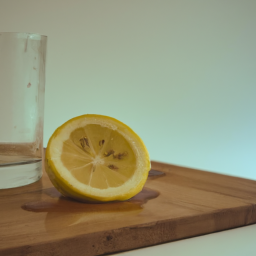
As a home chef who enjoys trying new things in the kitchen, I often use lemon juice to give my dishes a zesty flavor. But have you ever thought about how long that bottle of lemon juice will last in your refrigerator? Hoping to prevent food waste, I decided to look into the shelf life of fresh lemon juice.
According to my findings, the shelf life of real lemon juice varies depending on whether it is freshly squeezed or bottled. Freshly squeezed lemon juice can last up to a week when stored in an airtight container in the fridge. However, bottled lemon juice typically has a longer shelf life due to the addition of preservatives.
But how long does bottled lemon juice really last? And what are the signs that it has gone bad? Let’s dive deeper into the world of lemon juice shelf life and storage.
Key Takeaways
- Freshly squeezed lemon juice can last up to a week in the fridge, while bottled lemon juice with preservatives can last up to 6 months.
- To extend the shelf life of lemon juice, natural preservatives like citric acid or ascorbic acid can be added, and freezing can also help.
- Signs of spoiled lemon juice include a sour smell and cloudy appearance, and consuming it can lead to health risks.
- Lemon juice has many uses, from cooking to cleaning, and offers health benefits such as improving digestion and boosting the immune system.
Understanding the Shelf Life of Lemon Juice
The shelf life of lemon juice can vary depending on the storage method and temperature. Freshly squeezed lemon juice can last up to 2-3 days in the refrigerator if stored in an airtight container. However, if you’re using bottled lemon juice, it can last for up to 6 months in the refrigerator. Freezing is another option to extend the shelf life of lemon juice, where it can remain usable for several months if stored properly in a freezer-safe container. It’s also important to note that over time, both fresh and bottled lemon juice may lose potency and flavor, even before visible signs of spoilage occur. To maximize the shelf life of lemon juice, always ensure it is kept sealed and properly stored to maintain its freshness and quality.
To extend the shelf life of lemon juice, you can add natural preservatives such as citric acid or ascorbic acid. These preservatives can help inhibit the growth of bacteria and fungi, thereby prolonging the life of your lemon juice. Additionally, you can freeze lemon juice to make it last even longer. Simply pour the juice into an ice cube tray and freeze. Once frozen, transfer the cubes to a resealable freezer bag and store in the freezer for up to 6 months.
When it comes to properly storing lemon juice, there are a few steps you can take to ensure maximum freshness.
How to Properly Store Lemon Juice
When it comes to storing lemon juice, there are two options: refrigeration or freezing. Personally, I prefer to refrigerate it since it’s easier to access and use.
However, if you’re looking to store it for a longer period of time, freezing is the way to go. The next important consideration is choosing the right container.
Glass bottles or jars with tight-fitting lids are ideal, as they’ll prevent any air from getting in and altering the juice’s flavor.
Refrigeration vs. Freezing
Storing real lemon juice in the fridge will keep it fresh for up to two weeks, but freezing it can extend its shelf life even further. However, it’s important to note that freezing can alter the quality of the lemon juice.
Frozen lemon juice may not taste as fresh as refrigerated lemon juice and may also lose some of its natural acidity. When freezing lemon juice, it’s important to use airtight containers to prevent freezer burn and to label them with the date of freezing.
Additionally, it’s recommended to freeze lemon juice in small portions, such as ice cube trays, so that you can easily thaw only what you need. When you’re ready to use the frozen lemon juice, simply thaw it in the fridge or at room temperature, and give it a good shake to redistribute any settled pulp.
Choosing the right container for storing lemon juice is crucial to maintaining its freshness.
Choosing the Right Container
To ensure optimal freshness of your lemon juice, it’s important that you choose the right type of container. Proper storage techniques can make all the difference in how long your lemon juice lasts. Here are some tips on choosing the right container for your lemon juice:
-
Choose a glass container: Glass containers are the best option for storing lemon juice as they won’t react with the acid in the juice.
-
Use an airtight lid: An airtight lid will prevent air from getting into the container, which can cause the lemon juice to spoil faster.
-
Opt for a smaller container: The more empty space in the container, the more air there is. Using a smaller container that fits the amount of lemon juice you have will reduce the amount of air in the container and help keep the juice fresh.
Following these tips will help extend the shelf life of your lemon juice. However, even with proper storage techniques, lemon juice can still go bad. So, it’s important to know the signs of spoiled lemon juice.
Signs of Spoiled Lemon Juice
If you notice a sour smell or a cloudy appearance in your lemon juice, it’s time to toss it out and get a new bottle. These are the two most common signs that your lemon juice has gone bad and is no longer safe for consumption. While it can be disappointing to have to throw out a bottle of lemon juice, it’s important to prioritize your health and avoid any potential risks associated with consuming spoiled juice.
To give you a better idea of what to look for, here is a table outlining the signs of spoiled lemon juice:
| Signs of Spoiled Lemon Juice | Meaning |
|---|---|
| Sour smell | Indicates bacterial growth |
| Cloudy appearance | Indicates fermentation or mold growth |
It’s important to note that consuming spoiled lemon juice can lead to health risks such as food poisoning, stomach upset, and even more serious illnesses like botulism. To avoid any potential risks, it’s best to dispose of the spoiled juice and purchase a new bottle. Now, let’s move on to the next topic of using expired lemon juice.
Using Expired Lemon Juice
When using expired lemon juice, it’s important to remember that the flavor may be altered and it may not have the same acidity as fresh lemon juice. However, there are ways to revive expired lemon juice if you find yourself in a pinch. Here are some tips to help you get the most out of expired lemon juice:
- Add a pinch of sugar to balance out any bitterness that may have developed.
- Use it in marinades or dressings where the flavor will be mixed with other ingredients.
- Dilute it with water to reduce any sourness and use it as a natural cleaning solution.
In addition to these tips, there are alternative uses for expired lemon juice that can come in handy. For example, it can be used as a natural hair lightener or mixed with baking soda to create a homemade cleaning paste. While expired lemon juice may not be ideal for cooking or baking, there are still ways to make use of it.
To make lemon juice last longer, there are a few steps you can take to preserve its freshness and flavor.
Making Lemon Juice Last Longer
You can extend the lifespan of your freshly squeezed citrusy goodness by implementing a few simple storage techniques. One of the easiest ways to preserve lemon juice is by refrigerating it.
Lemon juice can last up to 2-3 days in the fridge, but to make it last even longer, consider freezing it in ice cube trays. Once frozen, transfer the cubes to a resealable freezer bag and store it in the freezer for up to 6 months.
Another way to preserve lemon juice is by adding natural preservatives. Vitamin C, also known as ascorbic acid, is a natural preservative that can help keep your lemon juice fresh for longer. Simply add a small amount of vitamin C powder to your freshly squeezed lemon juice before storing it.
Another natural preservative is salt. Adding a pinch of salt to your lemon juice can help inhibit the growth of bacteria and prevent spoilage. With these simple techniques, you can enjoy the benefits of fresh lemon juice for longer periods of time.
With all these ways to preserve lemon juice, it’s time to put them to use in some delicious recipes that call for it. From marinades and dressings to desserts and cocktails, lemon juice adds a bright and zesty flavor to any dish. Let’s dive into some of my favorite lemon juice recipes and get cooking!
Recipes that Use Lemon Juice
Oh, the delicious possibilities that open up when you add a splash of tart and tangy citrus to your recipes! Lemon juice is an incredibly versatile ingredient that can be used in a variety of sweet and savory dishes. Here are four lemon juice recipes that are sure to tantalize your taste buds and provide a healthy boost of vitamin C:
-
Lemon vinaigrette: Mix together 1/4 cup of olive oil, 2 tablespoons of lemon juice, 1 tablespoon of honey, and a pinch of salt and pepper. This dressing is perfect for salads or as a marinade for chicken or fish.
-
Lemon garlic shrimp: In a large skillet, sauté 1 pound of shrimp in 2 tablespoons of butter and 2 minced garlic cloves. Add 1/4 cup of lemon juice and cook until the shrimp are pink and cooked through. Serve over rice or pasta.
-
Lemon roasted vegetables: Toss your favorite vegetables (such as broccoli, carrots, and cauliflower) in a mixture of 1/4 cup of olive oil, 2 tablespoons of lemon juice, and salt and pepper. Roast in the oven at 400°F for 20-25 minutes.
-
Lemon sorbet: In a blender, mix together 1 cup of water, 1/2 cup of sugar, and 1/2 cup of lemon juice. Pour the mixture into an ice cream maker and churn according to the manufacturer’s instructions. This refreshing dessert is perfect for a hot summer day.
Not only do lemon juice recipes add flavor to your meals, but they also provide numerous health benefits. Lemon juice is rich in vitamin C, which can boost your immune system and help prevent illnesses such as the common cold. Additionally, lemon juice has been shown to improve digestion, reduce inflammation, and even aid in weight loss. So go ahead and add a squeeze of lemon juice to your recipes – your taste buds and your body will thank you!
As we wrap up our exploration of lemon juice, be sure to check out the additional resources section for more information on how to use this versatile ingredient in your cooking and beyond.
Additional Resources
As I continue to research about lemon juice, I’ve come across some useful additional resources that I’d like to share.
First, it’s important to note the importance of citing sources and providing references when conducting research. This ensures that the information presented is accurate and reliable.
Secondly, related articles may provide additional insights and perspectives on the topic, expanding one’s knowledge.
Lastly, products such as books and tools can aid in further exploration and experimentation with lemon juice in cooking and beyond.
Citations and References
Citing reliable sources is crucial when determining how long real lemon juice can last, so let’s take a look at some references.
Here are some sources that provide credible information on the shelf life of real lemon juice:
- The National Center for Home Food Preservation
- The United States Department of Agriculture (USDA)
- The Lemon Juice Association
Each of these sources provides valuable information on the storage and shelf life of real lemon juice. By consulting these sources, you can ensure that you’re using the most reliable information when determining how long your real lemon juice will last.
When it comes to finding information on the longevity of real lemon juice, it’s important to be diligent in your research. By consulting credible sources, you can be confident in the accuracy of your findings.
In the next section, we’ll explore some related articles and products to help you make the most of your real lemon juice.
Related Articles and Products
Looking for ways to make the most of your freshly squeezed lemon juice? There are plenty of lemon juice alternatives that can be used in place of the real thing. Some of the most popular alternatives include bottled lemon juice, lemon extract, and citric acid.
Bottled lemon juice is a convenient solution for those who don’t have access to fresh lemons or simply prefer the convenience of a bottled product. Lemon extract is a concentrated flavoring that can be used in small amounts to add a burst of lemon flavor to dishes. Citric acid is a natural preservative that can be used in marinades, dressings, and other recipes to add a sour flavor similar to that of lemon juice.
In addition to its delicious flavor, lemon juice also offers a number of health benefits. It’s rich in vitamin C, which helps to boost the immune system and protect against colds and flu. Lemon juice is also a natural diuretic, which can help to flush toxins from the body and promote healthy digestion. Additionally, lemon juice has been shown to have anti-inflammatory properties, making it a valuable addition to any healthy diet.
With so many benefits, it’s no wonder that lemon juice is such a popular ingredient in the kitchen. Now, let’s move on to the next section and share our experiences!
Share Your Experience
I’d like to invite you to share your experience regarding the previous subtopic on how long real lemon juice lasts.
Your feedback and comments will greatly help others who are interested in this topic.
Additionally, I encourage you to share this discussion on your social media accounts to reach a wider audience and create a more engaging conversation.
Let’s contribute to a more informed and knowledgeable community.
Feedback and Comments
Wow, it’s amazing to see how many people have shared their personal experiences with using real lemon juice and how long it lasts in the comments section! It’s clear that people are paying attention to the importance of quality when it comes to choosing the best brands to buy.
Many commenters have noted that not all lemon juice is created equal, and that the quality of the lemon juice can greatly impact its shelf life. Some have even suggested buying organic lemon juice or squeezing fresh lemons yourself for the best results.
When it comes to choosing the best brand, there’s no one-size-fits-all answer. It really depends on personal preference and what you plan to use the lemon juice for. Some popular brands mentioned in the comments include Santa Cruz Organic, Lakewood, and Simply Organic. It’s important to read the labels and look for lemon juice that is 100% pure and not from concentrate. And of course, always store your lemon juice properly in the fridge to ensure it lasts as long as possible.
With these tips in mind, you can enjoy fresh-tasting lemon juice for all your cooking and baking needs.
It’s interesting to see how many people are sharing their experiences and recommendations on this topic. But now, let’s move on to the next section and talk about social media sharing.
Social Media Sharing
Social media sharing is an excellent way to share your favorite lemon juice brands and connect with like-minded individuals who appreciate the taste and health benefits of lemon juice.
Whether you prefer to use fresh or bottled lemon juice in your recipes, there’s a vast online community of lemon juice enthusiasts eager to share their knowledge and experience with you.
If you’re looking for new lemon juice recipes or want to learn more about the health benefits of this versatile citrus fruit, social media is the perfect place to start.
From lemon water to lemon vinaigrette, there are countless ways to incorporate lemon juice into your diet and reap the benefits of its high vitamin C and antioxidant content.
So why not join the conversation and start sharing your love of lemon juice with others today?
Frequently Asked Questions
How does storing lemon juice in glass versus plastic containers affect its shelf life?
When it comes to storing lemon juice, glass containers are preferred over plastic for a longer shelf life. Exposure to sunlight can impact quality, so store in a cool, dark place. Fresh lemon juice is best, refrigerated and used within a week.
Can you freeze lemon juice to extend its shelf life?
Yes, lemon juice can be frozen to extend its shelf life. Freezing methods include freezing in ice cube trays or in airtight containers. Alternative preservation techniques include adding citric acid or using a vacuum sealer to remove air.
Is it safe to drink lemon juice that has expired but doesn’t show any visible signs of spoilage?
Drinking expired lemon juice without visible spoilage may pose potential health risks, as harmful bacteria may be present. It’s best to discard it and use fresh lemon juice. Always check expiration dates to ensure safety.
How does the acidity level of lemon juice affect its shelf life?
The acidity level of lemon juice impacts its preservation. A lower pH level, around 2.0-2.5, inhibits bacterial growth. Properly stored in a cool, dry place, lemon juice can last up to 6 months.
Are there any natural preservatives that can be added to lemon juice to make it last longer?
I’ve researched and found that adding natural preservatives like honey, apple cider vinegar, or citric acid can help extend the shelf life of lemon juice. Other preservation techniques include freezing or canning.
Conclusion
In conclusion, understanding the shelf life of lemon juice is essential to ensuring its freshness and safety. By properly storing lemon juice and keeping an eye out for signs of spoilage, you can extend its lifespan and make the most out of this versatile ingredient. Remember to always check the expiration date on your lemon juice and, when in doubt, err on the side of caution.
As the saying goes, "when life gives you lemons, make lemonade."But with proper storage and care, you can make so much more than just lemonade. Whether you’re using it in salad dressings, marinades, or baked goods, lemon juice adds a bright and tangy flavor to any dish.
So, go forth and experiment with new recipes, knowing that your lemon juice will be fresh and delicious.
Cindy thoroughly researches juicing trends, techniques, and recipes to provide readers with practical advice and inspiration. Her writing style is accessible, engaging, and designed to make complex concepts easy to understand. Cindy’s dedication to promoting the advantages of juicing shines through her work, empowering readers to make positive changes in their lives through the simple act of juicing.
-

 Popular Juice Brands4 weeks ago
Popular Juice Brands4 weeks ago10 Top-Rated Organic Juice Brands to Try
-

 Popular Juice Brands4 weeks ago
Popular Juice Brands4 weeks ago9 Best No-Sugar-Added Popular Juice Brands
-

 Health Benefits of Juice2 weeks ago
Health Benefits of Juice2 weeks agoHow Much Bottled Lemon Juice Equals 1 Lemon
-

 Vegetable Juices4 weeks ago
Vegetable Juices4 weeks ago12 Top Organic Vegetable Juice Brands Reviewed
-

 Juice Tips and Tricks6 days ago
Juice Tips and Tricks6 days agoHow Long Does Lemon Juice Last After Expiration Date
-
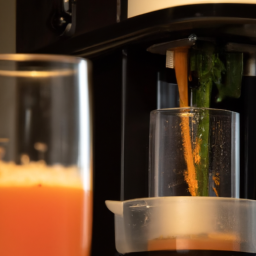
 Juice Tips and Tricks1 week ago
Juice Tips and Tricks1 week agoHow Long Does Juice Last After Juicing
-

 Juice Tips and Tricks1 week ago
Juice Tips and Tricks1 week ago2 Lemons Equal How Much Juice
-

 Vetted3 months ago
Vetted3 months ago15 Best Juices for Diabetics: Refreshing Options That Won’t Spike Your Blood Sugar




